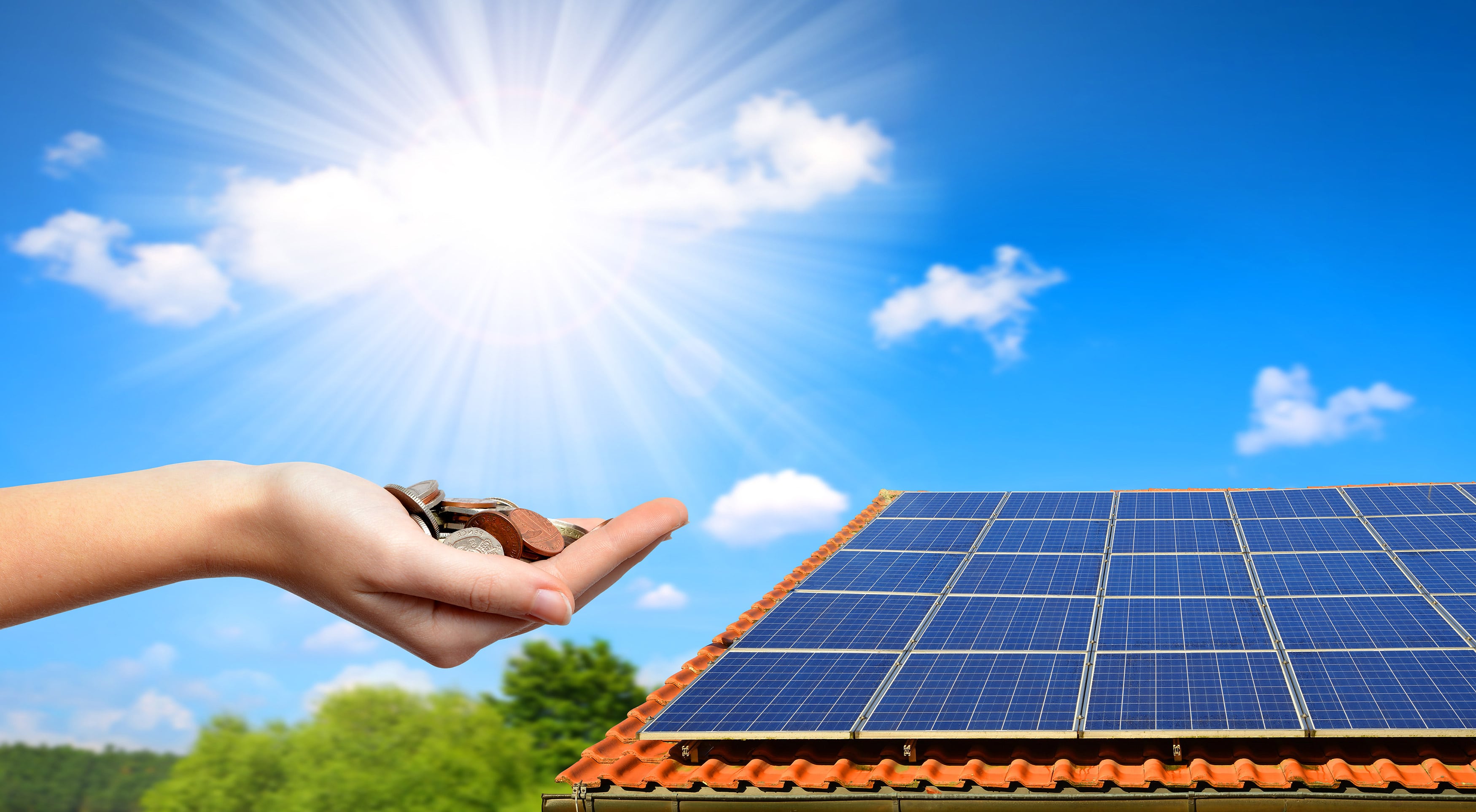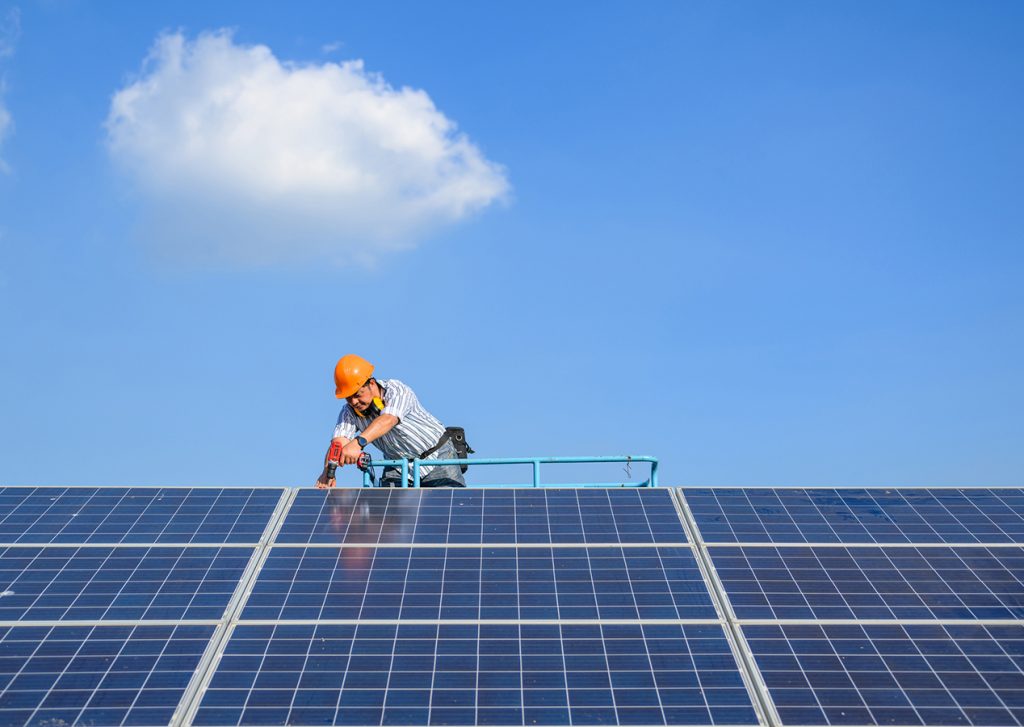Just How Solar Power Can Assist You Conserve Cash and Decrease Your Carbon Footprint
The combination of solar power into your energy portfolio offers an engaging possibility for both financial savings and environmental stewardship. By utilizing the sun's power, homeowners can dramatically reduce their month-to-month energy costs while likewise protecting against the changability of future power costs. The transition to solar adds to a significant decrease in carbon emissions, straightening individual money with wider ecological objectives. As numerous government incentives become readily available, the inquiry develops: how can one efficiently browse the preliminary investments and ongoing advantages of solar innovation to maximize both financial and environmental gains?
Recognizing Solar Power Financial Savings
While the shift to solar power commonly entails a first financial investment, understanding solar power savings is critical for property owners and companies alike. Solar energy systems can considerably decrease electrical power bills by utilizing the sun's energy, translating into substantial long-lasting financial benefits.
Additionally, solar energy systems might get different financial motivations, consisting of tax credit ratings and discounts, better improving their cost-effectiveness. The availability of internet metering permits individuals to sell excess power back to the grid, developing an extra revenue stream. These aspects add to the general cost savings linked with solar power.

Along with direct financial financial savings, solar power offers the added benefit of boosting property worth. Homes geared up with solar panels are frequently extra eye-catching to customers, as they assure reduced energy prices - Simply Solar Illinois. Recognizing these components is crucial for anyone taking into consideration solar power, as it highlights not simply the potential financial gains, but also the more comprehensive ecological and financial advantages of adopting renewable resource options
First Expenses vs. Long-Term Conveniences
When examining solar power, it is necessary to weigh the initial costs versus the long-lasting benefits. The upfront investment for photovoltaic panels, setup, and associated equipment can be significant, often varying from $15,000 to $30,000, depending on the system dimension and home energy needs. This first expenditure may prevent some house owners; however, it is crucial to take into consideration the potential savings over time.
As soon as installed, solar energy systems can considerably reduce and even remove month-to-month electrical energy expenses, resulting in significant long-term economic benefits. Researches indicate that home owners can save anywhere from $10,000 to $30,000 over the life-span of their solar system, typically 25 years. Furthermore, several states provide motivations, tax credit histories, and refunds that can counter first costs, making solar a lot more accessible.

Lowering Your Carbon Impact
Decreasing your carbon impact is a crucial factor to consider in today's ecologically aware society, and embracing solar power is among the most reliable strategies to accomplish this objective. Solar energy is a tidy, sustainable source that substantially diminishes reliance on nonrenewable fuel sources, which are major contributors to greenhouse gas discharges.

Furthermore, the prevalent adoption of solar modern technology urges the development of environment-friendly jobs and sustains developments in power storage and efficiency. The even more individuals and organizations purchase solar power, the better the collective reduction in carbon discharges, fostering a cleaner environment for future generations.
Federal Government Rewards and Discounts
Embracing solar energy not only profits the atmosphere but can additionally result in substantial economic cost savings, especially with the availability of federal government incentives and discounts. Various government, state, and neighborhood programs are developed to motivate property owners and organizations to buy solar energy systems, making the change more inexpensive.
One of one of the most noticeable motivations is the Federal Investment Tax Credit History (ITC), which permits planetary system proprietors to deduct a considerable article source percentage of the installment prices from their government tax obligations. This incentive has been essential in reducing the upfront expenses associated with solar energy systems. Furthermore, lots of states supply their own tax credit ratings, grants, and rebates that can even more enhance financial savings.
In addition, some city governments supply real estate tax exceptions for solar installments, making sure that home owners do not encounter raised real estate tax as an outcome of their renewable resource investments. Utility firms might also offer incentives, including internet metering discover this and feed-in tolls, which enable solar energy users to market excess power back to the grid.
Choosing the Right Solar System
Choosing the ideal planetary system is essential for optimizing power performance and monetary benefits. The choice hinges on numerous aspects, consisting of energy requirements, budget, and readily available area. House owners ought to begin by evaluating their electricity intake to identify the system dimension required for optimum efficiency.
Next, think about the various kinds of solar technologies offered. Simply Solar Illinois. Photovoltaic (PV) panels are one of the most common, converting sunlight straight right into electrical energy, while solar thermal systems focus on home heating water. Each type has distinct benefits depending upon specific needs
Spending plan considerations are likewise paramount. Preliminary installment costs can differ substantially, so it's essential to contrast quotes from multiple service providers and check out funding choices. Government incentives and refunds can further minimize the monetary burden, making solar systems a lot more available.
Verdict
The environmental benefits of solar energy add to sustainable practices essential for combating environment adjustment. Federal government incentives enhance the expediency of solar modern technology adoption, urging a transition in the direction of a cleaner, extra economically efficient energy source.